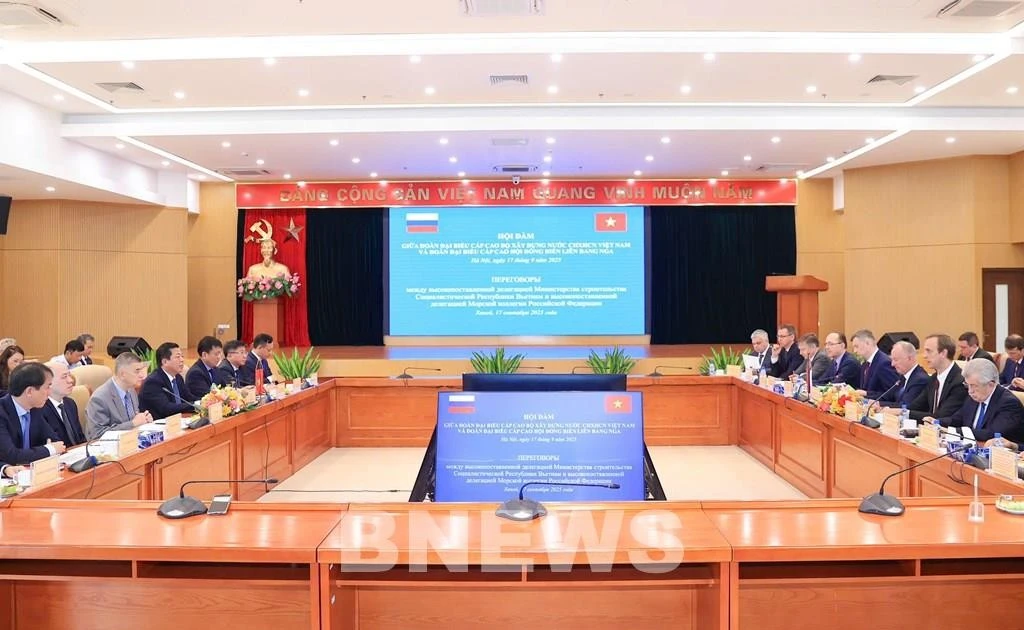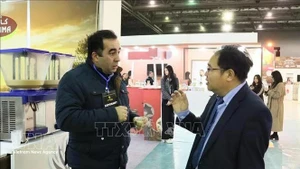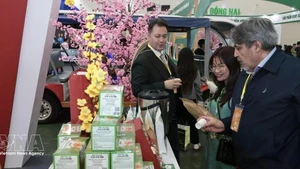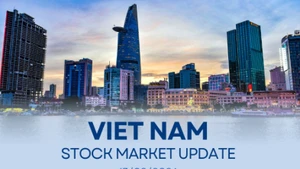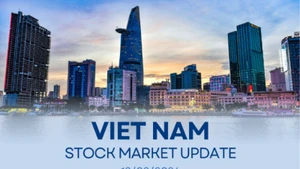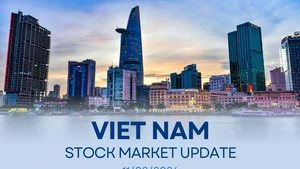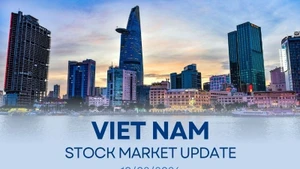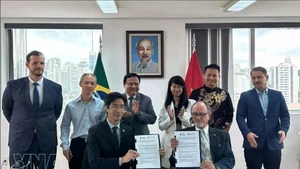The proposal was made during recent talks in Ha Noi between Minister of Construction Tran Hong Minh and Aide to the President of Russia and Chairman of the Maritime Board Nikolai Platonovich Patrushev.
During the talks, Patrushev hailed the comprehensive strategic partnership between Viet Nam and Russia, highlighting Russia’s technological expertise and shipbuilding capacity, particularly in producing fishing vessels and passenger ships.
He emphasised Viet Nam’s important role in Asia’s shipbuilding sector and expressed Moscow’s wish to strengthen cooperation with Ha Noi in shipbuilding, maritime trade, and logistics.
He also encouraged Vietnamese enterprises to participate in the Northern Sea Route – a strategic Arctic shipping lane linking Europe and Asia that significantly reduces shipping time and costs.
Russia is also keen to cooperate with Viet Nam in building new shipyards, modernising existing facilities, and developing research and testing centres for shipbuilding.
Speaking at the event, Russian Deputy Minister of Industry and Trade A. Karimov suggested expanding cooperation into areas such as robotics, communications, biotechnology, geology, and pipeline manufacturing. He invited Viet Nam to take part in the NEVA Exhibition and Conference, the largest civil shipbuilding exhibition in Eastern Europe and one of the world’s top ten events in the sector.
Executives from Russian corporations, including FESCO and Delo, shared recent progress in logistics cooperation and voiced interest in expanding joint activities in shipbuilding, logistics infrastructure, and training. They stressed the need for a stronger legal framework to facilitate bilateral projects and research.
For his part, Minh welcomed the Russian proposals, stressing that this is a timely opportunity to elevate maritime cooperation.
He reaffirmed the traditional friendship and multifaceted cooperation between the two countries, particularly in transport, which plays a key role in driving trade, tourism, and economic growth.
The minister urged Russia to complete procedures for signing a revised protocol to the 1993 Maritime Trade Agreement and a memorandum of understanding (MoU) on cooperation between the Russian Maritime Board and Viet Nam’s Ministry of Construction. He also suggested both sides finalise internal procedures to sign an MoU on mutual understanding in parallel with the amended agreement.
In shipbuilding, Minh proposed that Russia collaborate on developing shipbuilding industrial parks in Viet Nam and welcomed Russian investors to explore opportunities in Viet Nam’s seaport system under current regulations and WTO commitments.
He encouraged both sides to facilitate Vietnamese and Russian enterprises in expanding logistics operations, particularly the Viet Nam–Vladivostok container route. He also recommended that FESCO and Viet Nam Maritime Corporation (VIMC) study the establishment of a joint venture to operate maritime transport routes. Cooperation could also include exchanging crew and vessel data to streamline online administrative procedures in line with the Convention on Facilitation of International Maritime Traffic.
Minh said Viet Nam looks forward to Russia’s support in organising short- and long-term training programmes, scholarships, and capacity building for Vietnamese maritime officials and shipbuilding specialists.
He expressed appreciation for Russia’s initiative on the International North–South Transport Corridor (INSTC), saying Viet Nam’s participation could open new markets for Vietnamese goods. He assigned the Viet Nam Maritime and Inland Waterways Administration to lead studies on potential engagement in the project and to serve as a contact point for Russian investors.
